A high voltage battery (typically operating above 100V, often 400V or more) is an energy storage system designed to deliver significant electrical power efficiently. Unlike standard lower-voltage batteries, HV battery packs connect many cells in series, boosting the total voltage output. This design is crucial for high-power applications, especially modern solar energy storage.
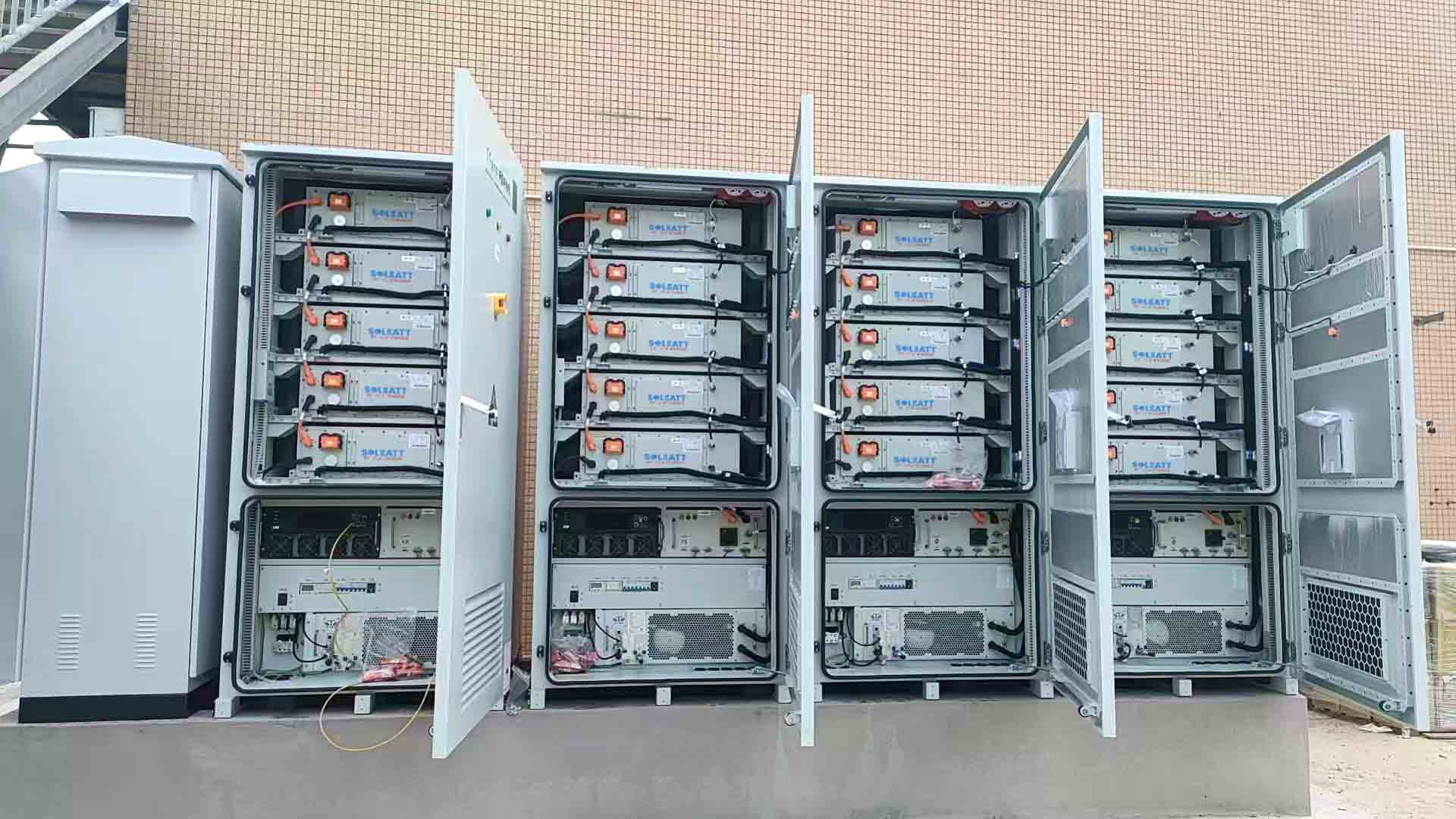
YouthPOWER LiFePO4 Solar Battery Factory with 20 years of expertise, provides cutting-edge high voltage and low voltage battery solutions tailored for global renewable energy needs. This article explores high voltage lithium batteries (especially LiFePO4), explaining how they work, their advantages, applications in home and commercial solar storage, market trends, and why YouthPOWER is your ideal partner for HV energy storage solutions.
1. How Do High Voltage Batteries Produce Electric Current?
Like all batteries, high voltage batteries produce electric current through electrochemical reactions. Inside a high voltage lithium ion battery, lithium ions move between the anode and cathode through an electrolyte when discharging, releasing electrons that flow through an external circuit as usable electricity. The key difference lies in the series connection of hundreds of cells. Each cell contributes its voltage (e.g., 3.2V for LiFePO4), adding up to create the higher voltage battery pack (e.g., 102.4V, 400V+). This high voltage allows for lower current flow for the same power output (Power = Voltage x Current), significantly reducing energy losses in cables and connections, making them ideal for powering high voltage inverters and large systems.
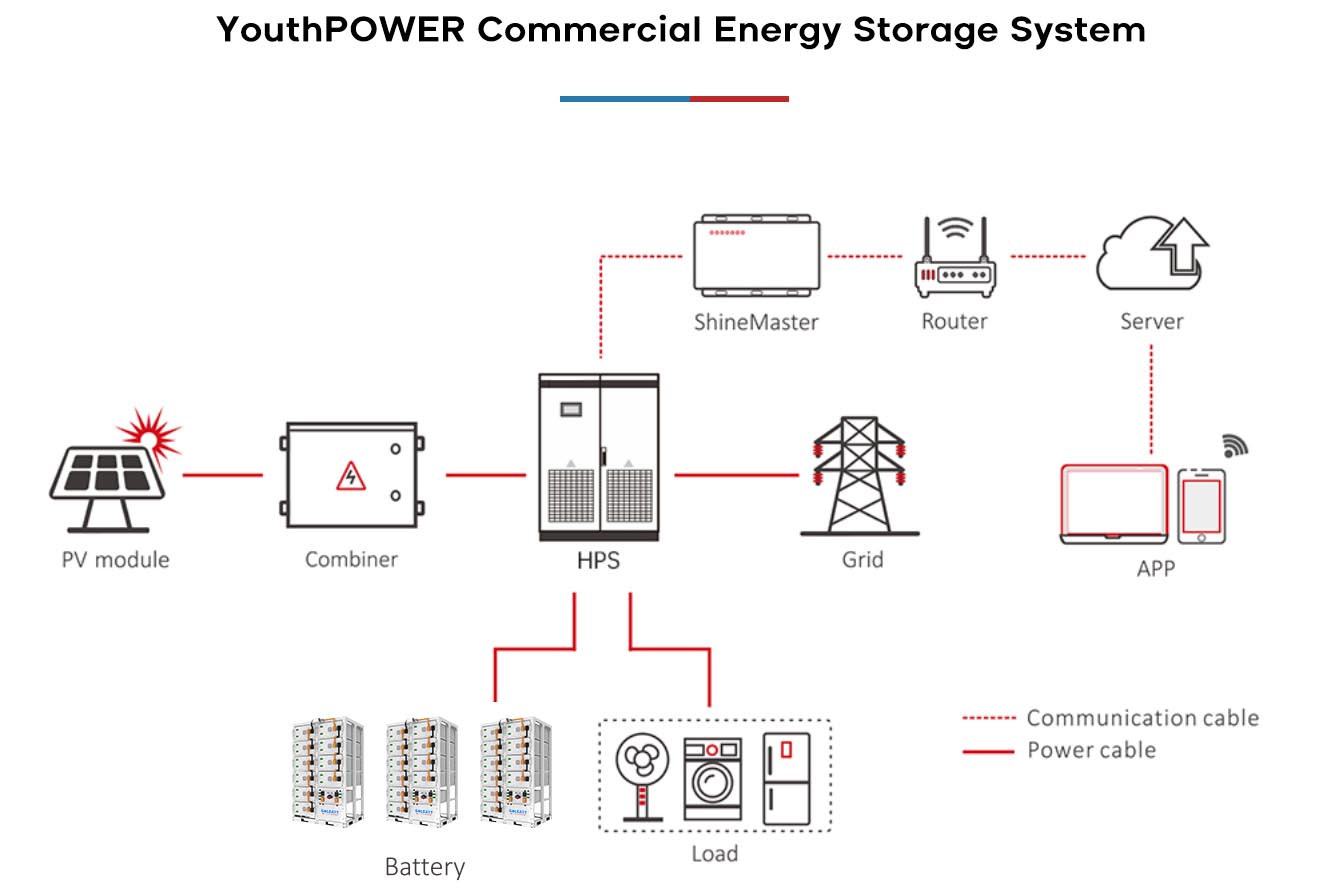
2. Advantages of High Voltage LiFePO4 Battery
Choosing a high voltage LiFePO4 battery offers compelling benefits over lower-voltage or older chemistries:
- ① Higher Efficiency: Reduced current minimizes resistive losses in wiring and connections, maximizing usable energy from your solar panels.
- ② Simplified System Design: Higher voltage allows thinner, less expensive cables and often requires fewer parallel strings, simplifying installation and balance of system (BOS) costs.
- ③ Better Inverter Compatibility: Modern high voltage solar inverters and high voltage DC to AC inverters are specifically designed for HV battery inputs, optimizing performance and enabling advanced grid services.
- ④ Enhanced Performance: Delivers higher sustained power output, crucial for starting large motors or handling heavy commercial loads.
- ⑤ LFP Safety & Longevity: LiFePO4 high voltage packs inherently offer superior thermal stability, safety, and a longer cycle life (often 6000+ cycles) compared to other lithium types.
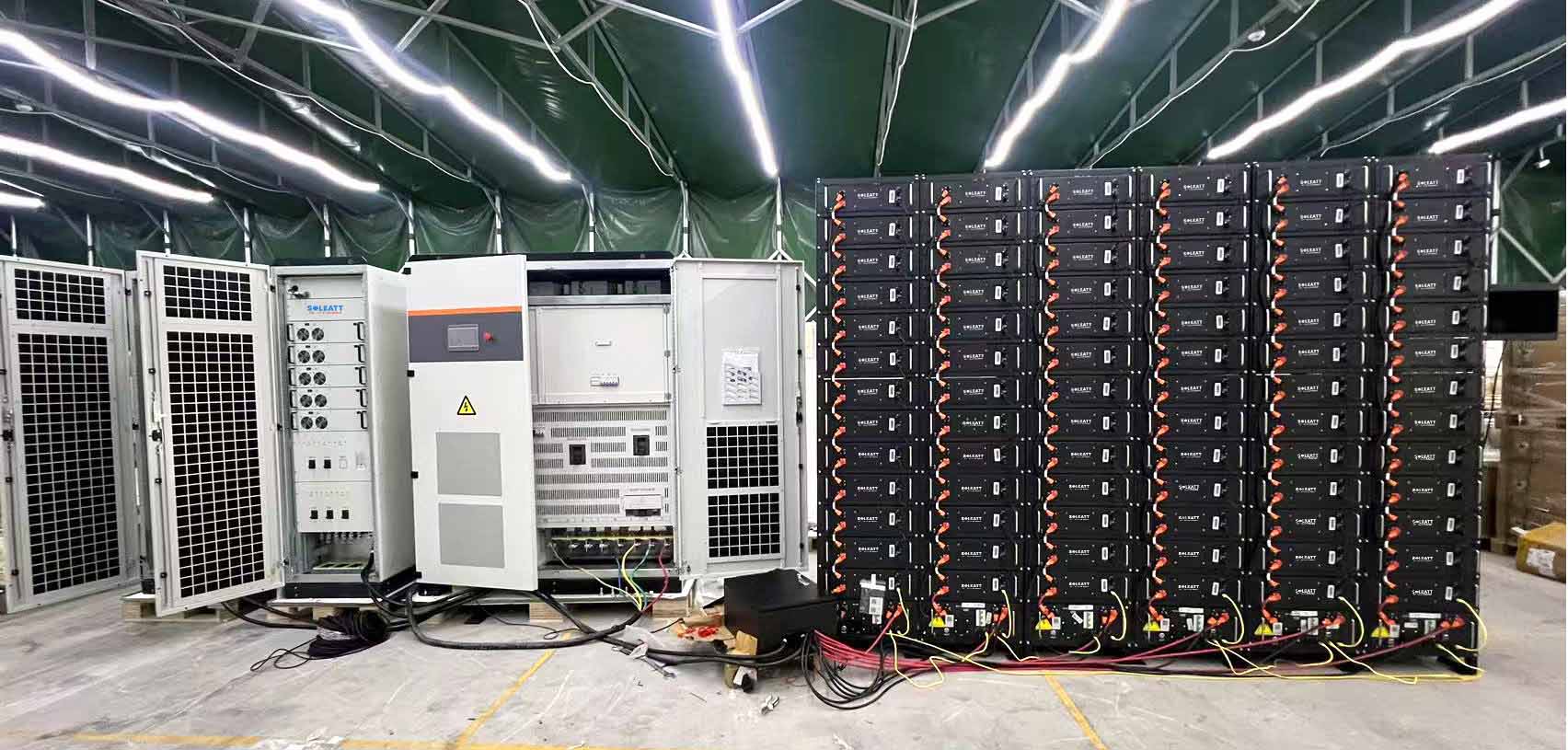
3. High Voltage LiFePO4 Battery for Home and Commercial Use
The applications for high voltage batteries are rapidly expanding:
- ⭐ High Voltage Home Battery: Modern HV solar battery systems for residences provide whole-home backup, maximize self-consumption of solar power, and seamlessly integrate with high voltage inverters for efficient, compact energy storage.
- ⭐ High Voltage Commercial Battery: Businesses and industries leverage high voltage commercial battery systems for peak shaving (reducing costly demand charges), backup power for critical operations, and large-scale high voltage battery storage for solar farms or grid support. Their efficiency and power density are key advantages at large scales.
- ⭐ High Voltage Solar Battery: Essential for modern solar-plus-storage projects, high voltage solar batteries efficiently capture and store solar energy, feeding it back through high voltage solar inverters with minimal losses.
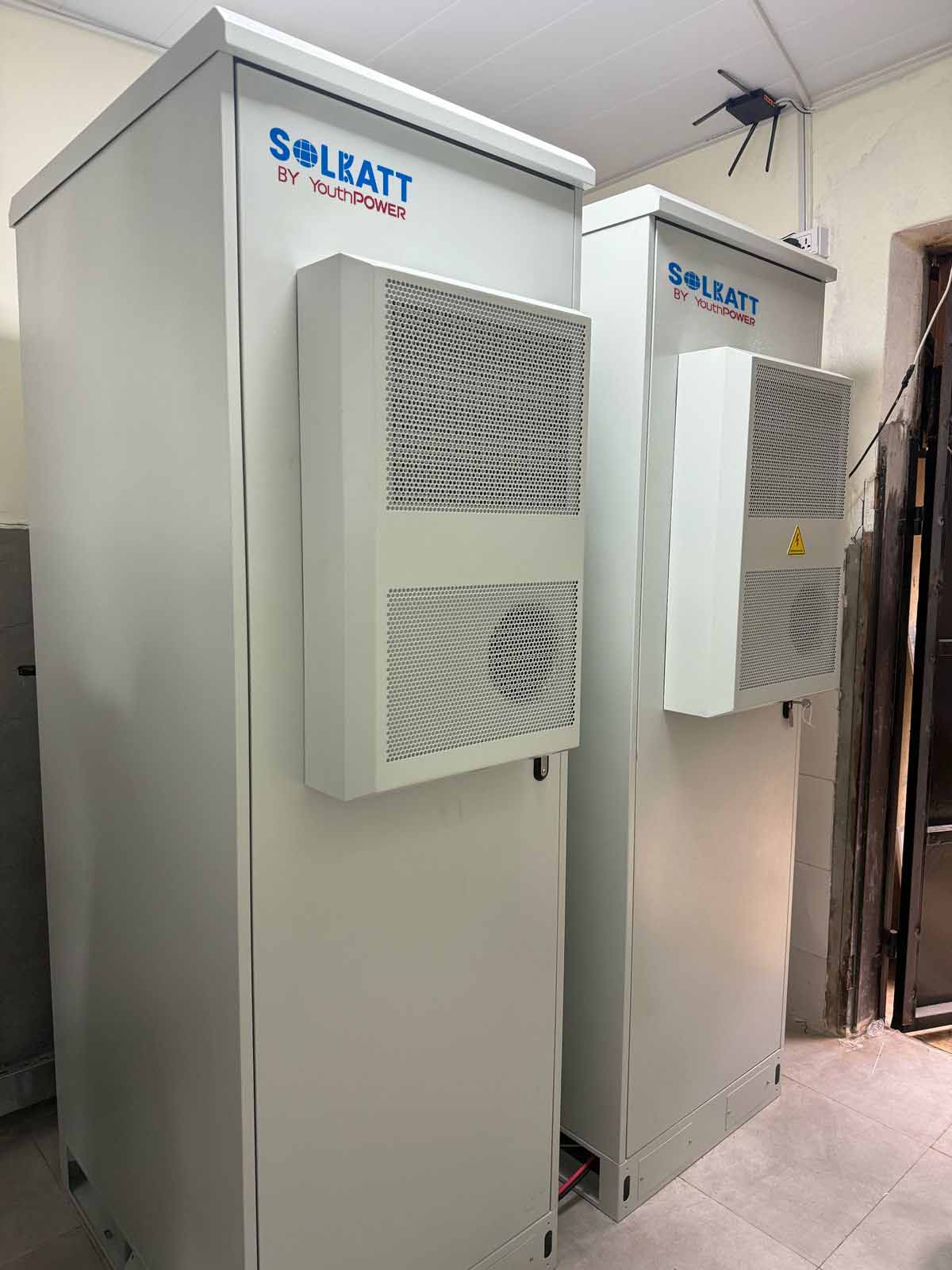
4. Global High Voltage Battery Market
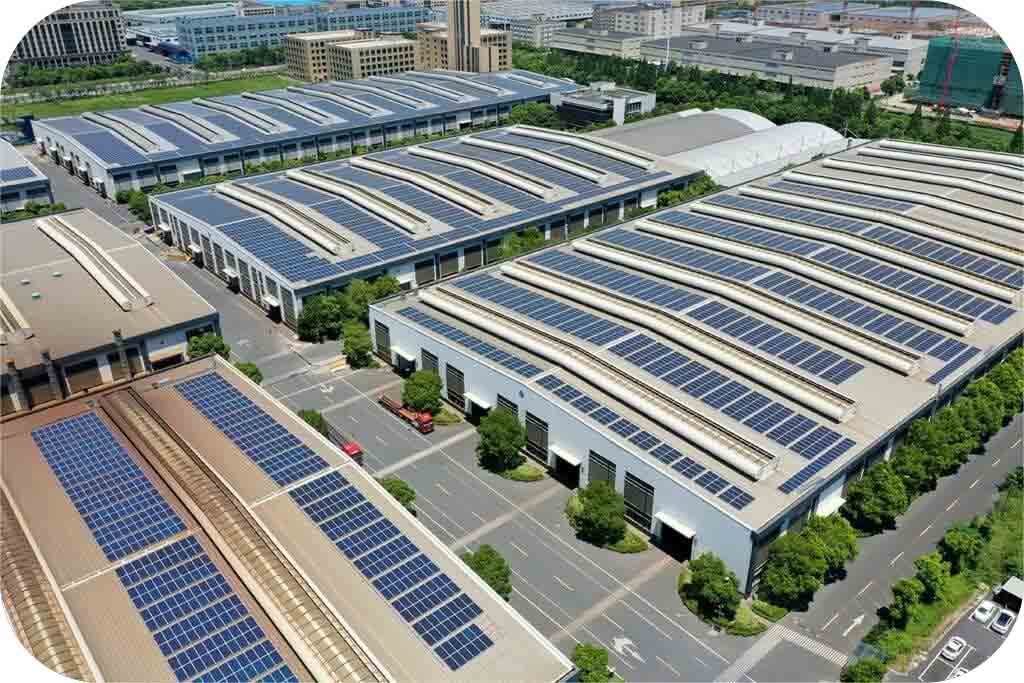
The high voltage battery market is experiencing explosive growth, driven by the global push for renewable energy integration and electrification. The demand for high voltage batteries for energy storage is surging, particularly in residential, commercial & industrial (C&I), and utility-scale segments.
The superior efficiency, falling costs of lithium-ion technology (especially LiFePO4), and the proliferation of compatible high voltage inverters are key market accelerators. HV battery storage is no longer a niche; it's becoming the standard for new, high-performance solar storage installations worldwide.
5. Choosing the Best HV Battery Storage Solution with YouthPOWER
Selecting the right high voltage battery pack is critical. YouthPOWER stands out with its 20-year legacy as a specialized LiFePO4 manufacturer:
▲ Expertise: Deep understanding of high voltage lithium battery design, safety, and integration.
▲ Robust Solutions: Durable, long-life high voltage LiFePO4 battery packs built for demanding daily cycling in high voltage battery storage applications.
▲ Compatibility: Our HV lithium battery systems are engineered to work flawlessly with leading high voltage inverters.
▲ Comprehensive Support: We provide tailored high voltage battery management system (BMS) technology and support for both high voltage home battery and large-scale high voltage commercial battery projects.
▲ Reliability: Decades of manufacturing excellence ensure you get a dependable HV battery storage solution.
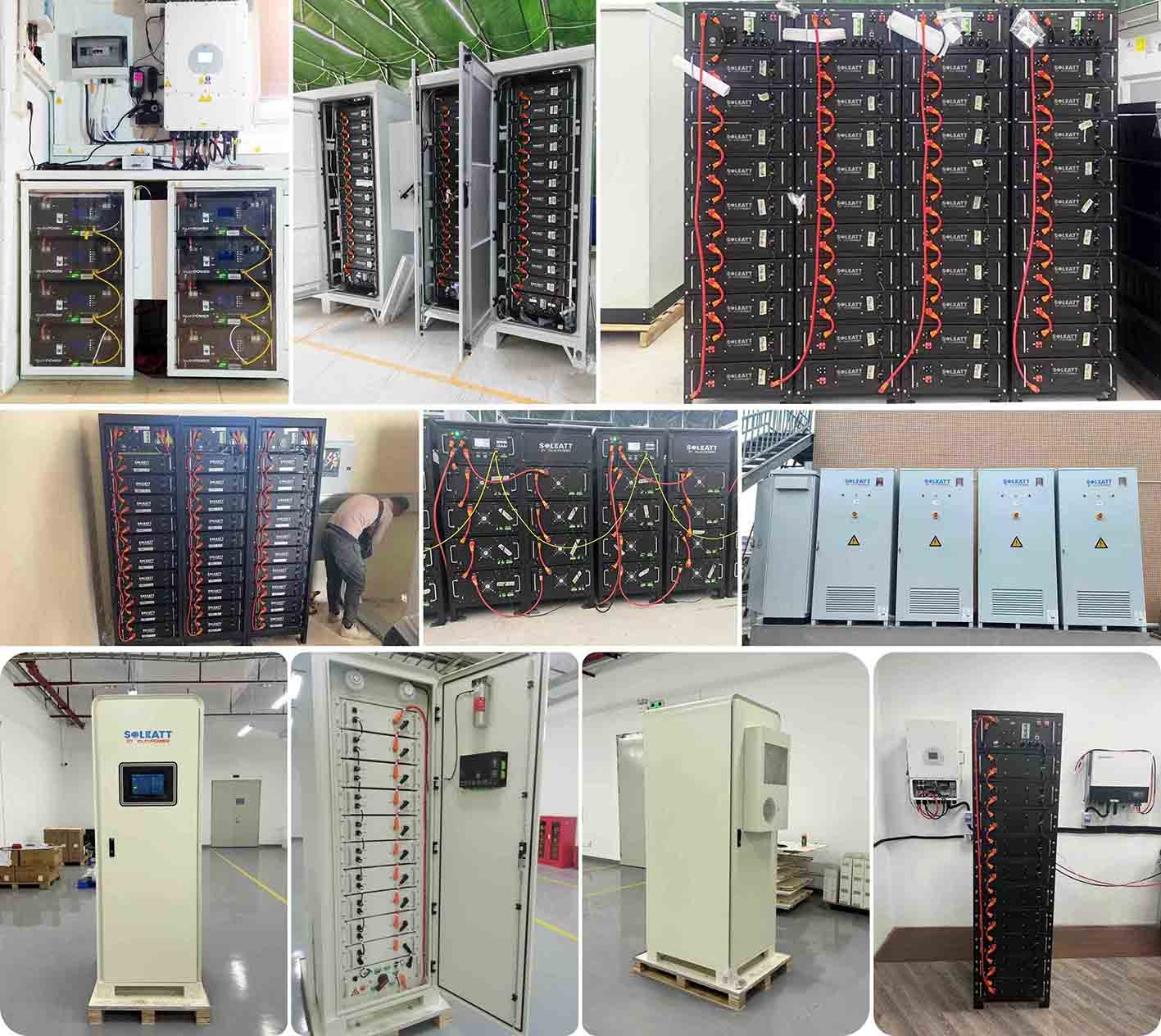
6. Conclusion
High voltage batteries, particularly high voltage lithium ion battery systems using safe LiFePO4 chemistry, represent the efficient, powerful, and scalable future of solar energy storage. Their advantages in efficiency, power delivery, and compatibility with modern inverters make them ideal for both high voltage home battery needs and expansive high voltage commercial battery applications. As the high voltage battery market continues its rapid ascent, partnering with an experienced manufacturer like YouthPOWER ensures you get a reliable, high-performance HV battery storage solution backed by decades of expertise.
7. Frequently Asked Questions (FAQ)
Q1: What exactly is considered a "high voltage" battery?
A1: While definitions vary, in solar energy storage, high voltage battery packs typically operate at system voltages of 100V or higher, commonly 200V, 400V, or even 800V DC. This contrasts with traditional 12V, 24V, or 48V systems.
Q2: Why choose a high voltage LiFePO4 battery over standard voltage?
A2: High voltage LiFePO4 offers greater efficiency (less energy lost as heat), allows thinner/cheaper wiring, provides higher power output, and integrates better with modern high voltage solar inverters, leading to overall system cost savings and better performance.
Q3: Is a high voltage home battery safe?
A3: Yes, when designed and installed correctly. YouthPOWER HV lithium battery systems use inherently stable LiFePO4 chemistry and incorporate sophisticated high voltage battery management system (BMS) technology for comprehensive protection against over-voltage, over-current, overheating, and short circuits. Professional installation is crucial.
Q4: What's the difference between HV and LV battery storage?
A4: HV battery storage uses high voltage battery pack designs (100V+), offering higher efficiency and power in a potentially more compact form. Low voltage battery (LV) systems (typically below 100V, e.g., 48V) are well-established but can have higher losses and require thicker cables for the same power. HV is becoming the standard for new, larger systems.
Q5: Do I need a special inverter for a high voltage solar battery?
A5: Absolutely. You must use a compatible high voltage inverter or high voltage DC to AC inverter, specifically designed to accept the DC voltage range of your high voltage battery pack. Standard low-voltage inverters will not work.
